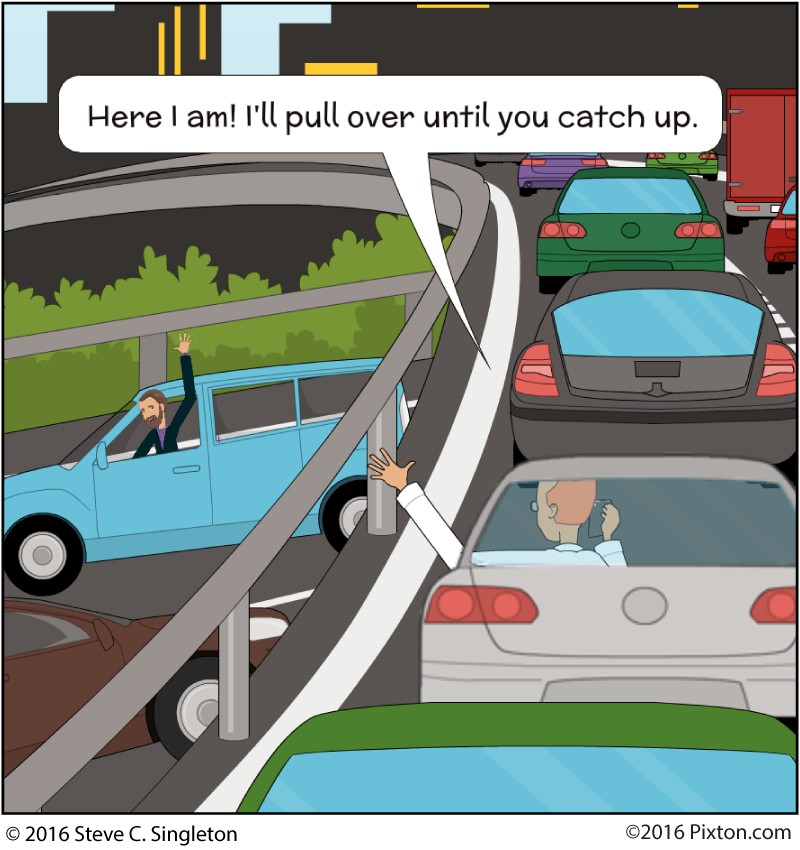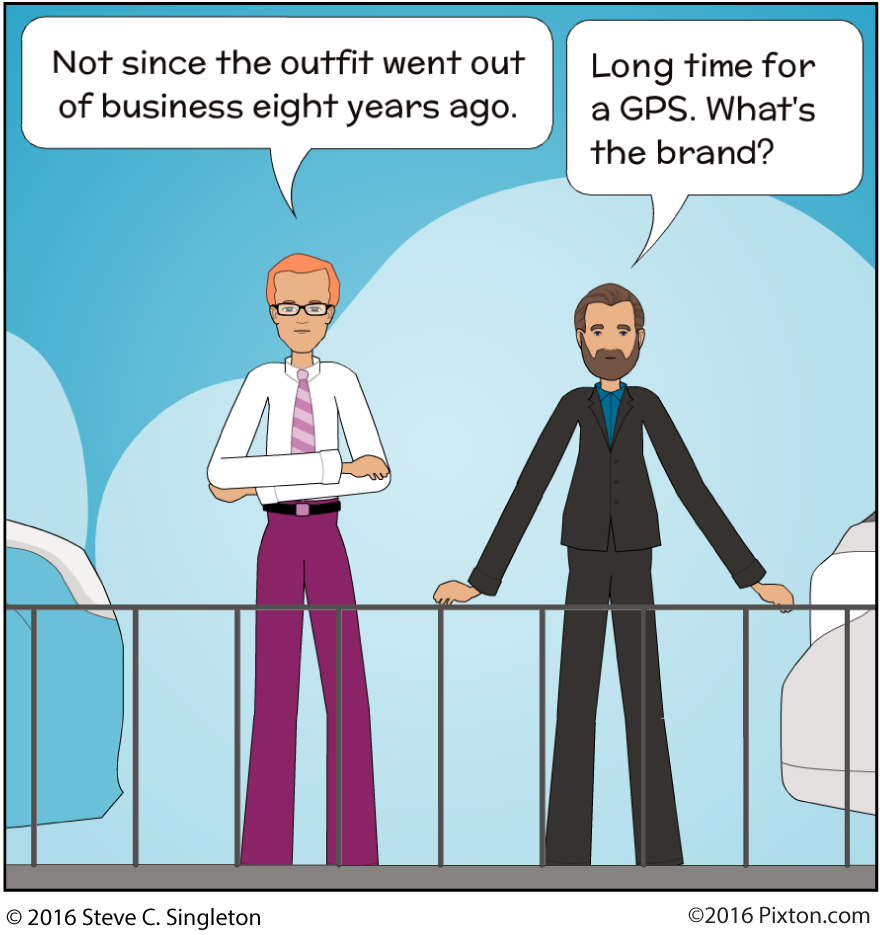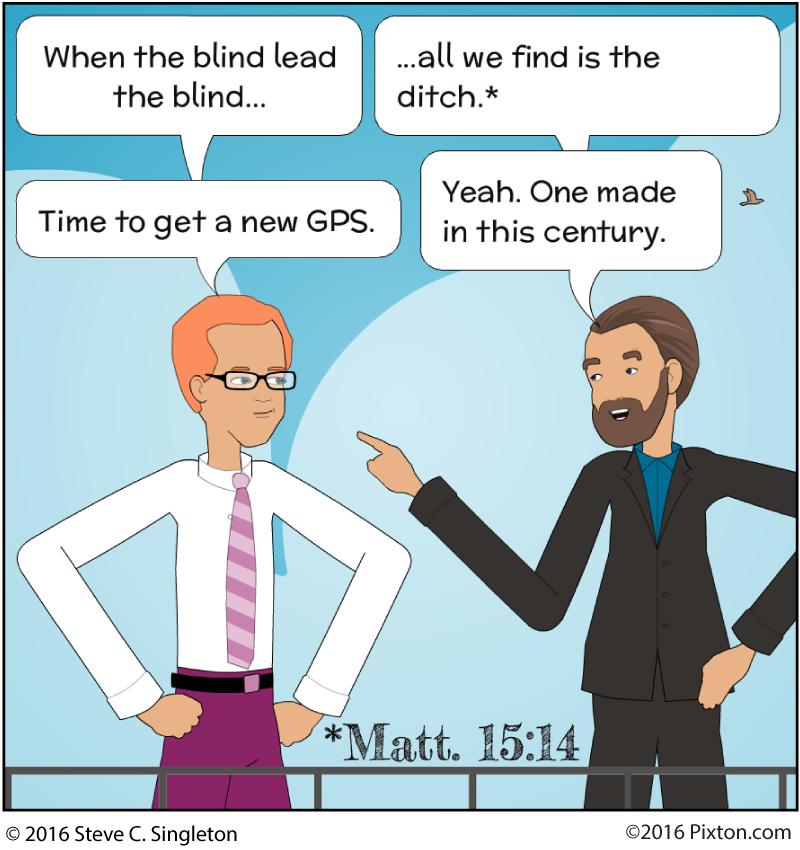The spiritual blindness of the Pharisees and how we can avoid it
Was the accusation of Jesus true?
Jesus, the Great Physician, again and again revealed his diagnosis of the Pharisees’ spiritual disability:
“Though seeing, they do not see; though hearing, they do not hear or understand. In them is fulfilled the prophecy of Isaiah: ‘You will be ever hearing but never understanding; you will be ever seeing but never perceiving.’” – Matthew 13:13-14 (parallels: Mark 4:12; Luke 8:10)
Leave them; they are blind guides. If the blind lead the blind, both will fall into a pit. – Matthew 15:14
For judgment I have come into this world, so that the blind will see and those who see will become blind…. If you were blind, you would not be guilty of sin; but not that you claim you can see, your guilt remains. – John 9:39, 41
Woe to you, blind guides! … You blind fools! … You blind men! … You blind guides! – Matthew 23:16, 17, 19, 24
You are going to have the light just a little while longer. Walk while you have the light, before darkness overtakes you. Whoever walks in the dark does not know where they are going. Believe in the light while you have the light, so that you may become children of light. – John 12:35-36
The Pharisees repeatedly listen to the preaching of Jesus. They are not absent when he performs amazing miracles. They witness his consistent kindness toward the lowest of their society’s low. Yet they reject him as God’s Messiah or even as a man from God (John 7:30-32; John 8:16). What’s more, they call him a glutton and a drunkard, a Samaritan, demon possessed, in league with the prince of demons, and even Beelzebul himself (Luke 7:34; John 8:48; Mark 3:22; Matthew 10:25). We ask ourselves, how can the Pharisees be so blind? And in asking this, we risk becoming blind Pharisees ourselves, unwittingly passing judgment on people whose weaknesses we share.
How the Pharisees evaluated Jesus
In their first encounters with Jesus, the Pharisees get off on the wrong foot and then never switch to the right one. Read chapters two and three of Mark:
Mark 2:1-12 – Teachers of the law (probably Pharisees) hear him declare that a lame man’s sins are forgiven. “Blasphemy!” they tell themselves. “Only God can forgive sins.” And they do not revise their opinion even when the lame man is able to obey Jesus’ command to get up and walk.
Mark 2:15-17 – Jesus eats with Levi and his tax collector friends, prompting some Pharisees to wonder out loud why he would do such a thing.
Mark 2:18-22 – People notice that Jesus’ disciples do not fast like John’s disciples and the disciples of the Pharisees do. Jesus defends them, comparing his ministry to a wedding reception and suggesting that people allow their minds to stretch.
Mark 2:23-28 – When the Pharisees accuse Jesus’ disciples of breaking the Sabbath by picking some heads of grain, Jesus defends them by comparing them to the companions of King David who ate bread reserved only for priests.
Mark 3:1-6 – The Pharisees condemn Jesus in their hearts for healing on the Sabbath, and yet on the Sabbath, they plot to kill him.
What Jesus was doing right
At the beginning of his ministry, Jesus announces his agenda to the synagogue crowd in Nazareth (Luke 4:16-21, combining prophecies from Isaiah 61:1-2 with Isaiah 58:6):
The Spirit of the Lord is on me,
because he has anointed me
to proclaim good news to the poor.
He has sent me to proclaim freedom for the prisoners
and recovery of sight for the blind,
to set the oppressed free,
to proclaim the year of the Lord’s favor.
Again and again during his preaching and teaching, Jesus describes his mission:
- My food is to do the will of him who sent me and to finish his work. – John 4:34
- I have come down from heaven not to do my will but to do the will of him who sent me. – John 6:38
- Do not think that I have come to abolish the Law or the Prophets; I have not come to abolish them but to fulfill them. – Matthew 5:17
- Let us go somewhere else—to the nearby villages—so I can preach there also. That is why I have come. – Mark 1:38; Luke 4:43
- I have not come to call the righteous, but sinners. – Mark 2:17; Matthew 9:13; Luke 5:32
- God did not send his Son into the world to condemn the world, but to save the world through him. – John 3:17
- I have come into this world as a light, so that no one who believes in me should stay in darkness. – John 12:46
- The Son of Man came to seek and to save the lost. – Luke 19:10
- The Son of Man did not come to be served, but to serve, and to give his life as aransom for many. – Mark 10:45; Matthew 20:28
- I have come that they may have life, and have it to the full. – John 10:10
- I lay down my life for the sheep. No one takes it from me, but I lay it down of my own accord.I have authority to lay it down and authority to take it up again. This command I received from my Father. – John 10:15, 18
- Do not suppose I have come to bring peace to the earth. I did not come to bring peace, but a sword. – Matthew 10:34
- I have come to bring fire on the earth, and how I wish it were already kindled! – Luke 12:49
- For judgment I have come into this world, so that the blind will see and those who see will become blind. – John 9:39
- I was sent only to the lost sheep of Israel. – Matthew 15:24
Careful obedience to the Father; faithfully keeping the law and the prophets; bringing understanding and purpose to spiritually benighted people; finding, turning, and transforming people whose plight seemed hopeless; giving of his time, his energy, and ultimately his life selflessly—does Jesus accomplish these things? We gladly confess that he does. His teachings, his behavior, and his attitude are all exemplary, and they inspire people to follow him, to do as he does.
Where do the Pharisees think that Jesus falls short?
On the surface of things, the Pharisees are critical of Jesus’ claims to be exempt from the Sabbath rules, arguing that if he is a Sabbath-breaker, nothing else that he does can overcome that sin (see John 9:16). They accuse him of blasphemy in his claims to be able to forgive sin and in his description of his intimate relationship with God as his Father. They denounce him for associating with sinners and for eating and drinking instead of fasting. They are annoyed when his disciples do not keep the established traditions.
The common thread in all of these grievances is the identity of Jesus. Is he than just another religious teacher or is he more: God’s anointed one, or even more: Immanuel (God among us)?
This explains the blindness of the Pharisees. They fail again and again to exercise the logic that would correct their misapprehensions. When Jesus heals a man born blind by making mud, dabbing it on his eyes, and sending him off to wash, the Pharisees focus only on the mud-making as a Sabbath infraction. They don’t ask themselves, “Why would God give Jesus such miraculous power if he’s a Sabbath-breaker. Perhaps we have misjudged this man by making our rules too fastidious. Or perhaps he really is Lord of the Sabbath, and our rules don’t apply to Him, given the mission God has laid out for him.”
On another occasion, Jesus demonstrates that God does not hold him guilty of blasphemy since he empowers him to heal the lame man (Mark 2:1-12). God would not grant such power to a blasphemer. Perhaps Jesus is more than just a teacher. Perhaps he really is Immanuel.
What is wrong with their evaluation?
The minds of the Pharisees have no room for Immanuel. Jesus does not fit their preconceptions, and they are unwilling to question whether their preconceptions are valid. So they Pharisees reject Jesus and try to convince others to turn away from him. They seek to embarrass him, to trip him up in his teachings, and to divide his followers.
Why this opposition if Jesus is on their side, sharing their goals, moving in the same direction and taking many others with him? This seems to get at the heart of the problem. Jesus does NOT share the goals of the Pharisees; their direction is opposite to his. On the surface, certainly, they seem to be in agreement.
Down deep, however, the Pharisees have different objectives. The gospels make clear that the Pharisees love money (Luke 16:14), they love attention (Matthew 6:1-16, the hypocrites Jesus parodies here would include the Pharisees, whom he labels hypocrites again and again in Matthew 23), and they love the praise and deference they receive from the people (Matthew 23:5-7). But Jesus maintains a ministry that thrives on a shoestring (Luke 9:58). He avoids attention (see Mark 1:38; Mark 1:45; Matthew 9:25; Mark 7:33; Mark 8:23). He does not seek praise or honors (Mark 10:17-18; Mark 12:14). Jesus does not conceal an inner conflict. His deep objectives are the same as the ones he has on the surface.
The Pharisees perceive this integrity of Jesus and, at some level, they also realize the opposition he poses to their deep-down objectives. Their spiritual blindness involves not perceiving that they are at odds with themselves. What they claim to support on the outside is at loggerheads with what their true priorities are. They are so busy examining and criticizing the behavior of others that they have no time at all for examining and criticizing themselves.
Blind leading the blind
Taken by itself, the sin of the Pharisees is bad enough, but when we realize that they are leading others down the same ditch-bound path, their sin becomes egregious. In first-century Palestine God has given them the stewardship of the law (compare Matthew 21:33-46 with Isaiah 5:1-7), permitting them to “sit in Moses’ seat” (Matthew 23:2), and to teach the people the right way to follow. Not only do they refuse to follow Jesus as Messiah, but the “shut the door of the kingdom of heaven in people’s faces” (Matthew 23:13).
Are we in danger of similar mistakes?
Someone has said that the gospels are designed for readers to mentally project themselves into the story, taking on the role of a member of the crowd, or one seeking a healing, or one of the disciples. As you read the gospels, however, do you ever assume the role of a Pharisee? Are you confident of your own righteousness and look down on everybody else (Luke 18:9)?
Pharisees are still among God’s people, and if we look closely, we will find their faces look too familiar. We must search our own hearts and root out the self-righteous and ever-ready-to-condemn thoughts. We must look to our deep motives and correct them to align with Christ’s. We must repent and take on the humility of a little child (Matthew 18:2-4). We must perceive clearly the great distance between the character of our Lord and our own, and ask the Father to help us bridge the gap.
When we consider that we too have an influence, that people are following our teaching and our example, we begin to perceive how serious this condition of Pharisee-itis is.
We must confess our spiritual blindness and deafness and beg the Great Physician to heal our hard hearts.
Want to go deeper?
Read Tractate Shabbat from The Mishnah.
In Shabbat you will get an idea of how careful the Pharisees were about keeping the Sabbath. Jesus never criticized them for their Sabbath rules, only for holding to them in circumstances in which something else clearly claimed a priority, such as rescuing a child or an ox from drowning in a well (see Luke 14:5). (It is true that the Mishnah was written down around the year 200 c.e., but many of its traditions go back to the heyday of Hillel and Shammai, at the dawn of the first century. Any reference to Aqiva, however, is definitely second century and post-New Testament.)
God’s original purpose for the Sabbath seems to be to give workers and their families and servants relief from the daily grind and to assign that relief as a blessing from God. By multiplying the rules for Sabbath-keeping, the Pharisees had turned such welcome relief into an unwelcome burden (see Matthew 23:4).
Isaiah 6:9-12 is pivotal for understanding the ministry of Jesus. Study it in its original context in Isaiah, then then were It is quoted or alluded to in the New Testament:
God has decreed that people who refuse to look at the gospel and refuse to listen to the saving message of salvation will neither see (perceive) nor hear it (hearken to it) (see Mark 4:10-12; John 12:37-41; Romans 1:18-32; 2 Thessalonians 2:9-12).
James P. Gills, M.D. Overcoming Spiritual Blindness (e-book) Lake Mary, Fla.: Creation House, 2005.
A world-famous ophthalmologist explores the topic of spiritual blindness and how to either prevent it or correct it. See the table of contents.







Claiming a “sight” that they do not have, many are blind to the glorious reality of God’s real ability to heal and save. A man “born” into sin cannot really be made well, can he? If people can
Claiming a “sight” that they do not have, many are blind to the glorious reality of God’s real ability to heal and save. A man “born” into sin cannot really be made well, can he? If people can